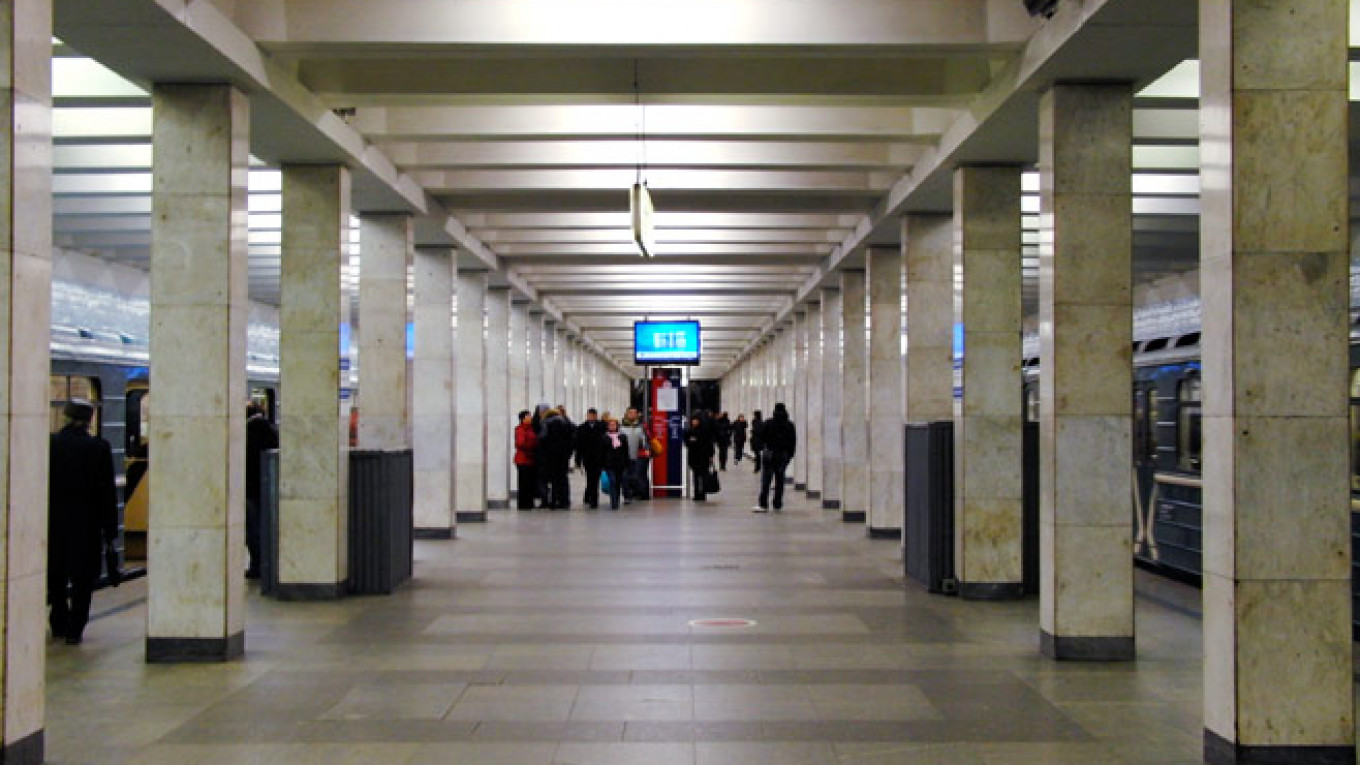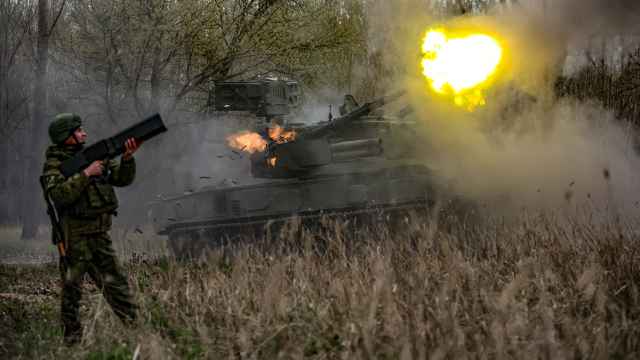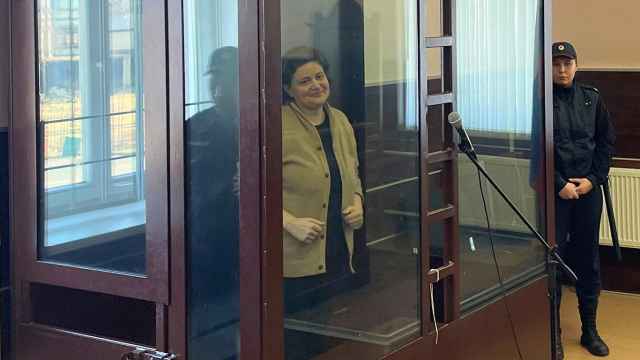For decades, Muscovites have been calling for the city to rename Voikovskaya metro station, named after Bolshevik revolutionary Pyotr Voikov, who played a part in the execution of Russia's last imperial family.
This year, city authorities finally appeared to be willing to make the change, but their methods quickly became an issue as big as the name of the station itself.
In July, Moscow Mayor Sergei Sobyanin said the name of at least the metro station — if not the surrounding area — could be changed. "I suppose we should think about [renaming] Voikovskaya metro station. It wouldn't lead to changing the surrounding addresses, so we should let people decide," he said in an interview with the Govorit Moskva radio station.
Several months later, in November, City Hall launched a survey on its online crowdsourcing platform Aktivny Grazhdanin (Active Citizen), asking whether the metro station, the transport hub in the district and the railway station currently under construction should be renamed.
The survey closes on Nov. 23, and so far 53 percent of more than 290,000 respondents, according to the project website, have voted against a renaming, with only 35 percent voting for it.
The results and the number of people taking part in the survey have elicited suspicion from opposition-leaning bloggers that Aktivny Grazhdanin is a sham set up to create the appearance of people backing decisions already made by City Hall.
Active or Imaginary?
The Aktivny Grazhdanin online platform was launched in December 2013 and declared a platform for "online referendums," designed for people to "influence what is happening in the city."
Alexander Plushchev, a prominent journalist specializing in Internet and IT concerns, was the first to point out the system's vulnerabilities on the very day the survey about renaming Voikovskaya took off. According to him, the website allows anyone with a working SIM card and a Russian phone number to take part in the survey — even people living in regions other than Moscow.
"I checked it with the help of several friends living in different cities. All of them were able to register. Moreover, all of them were able to vote," Plushchev wrote in his blog on Nov. 2, concluding that it was unclear how many of the voters were actually Muscovites and therefore how many would be impacted by the change.
Leonid Volkov, a longtime ally of Russian opposition firebrand Alexei Navalny, echoed his distrust of the survey, claiming that City Hall was lying about the number of people involved in it.
"City Hall is proud of having 1.2 million users in Aktivny Grazhdanin and 200,000 users voting in important surveys. How can this be true if the system was downloaded slightly more than 100,000 times on Android devices … and some 300,000-400,000 times on iOS devices," Volkov wrote on his blog.
He added that according to IT analysts, there were not enough desktop visits to Aktivny Grazhdanin to add up to the numbers authorities claimed, so most of the votes must have been forged in order to show people that they influence decision-making processes when in fact they don't.
"One can't call it electronic democracy, and one definitely can't base decisions on it," Volkov wrote.
Just last week City Hall reacted to the accusations and promised to reveal the statistics of the survey and give everyone the opportunity to re-check it. Currently the website of Aktivny Grazhdanin publishes daily updates on how many people voted, but the voters' provenance still remains unclear.
A request for comment sent to City Hall by The Moscow Times on whether the decision to rename the Voikovskaya metro station and its surroundings will be based on the results of the survey — and whether those results can be trusted — went unanswered by the time this article went to press.
The survey on renaming Voikovskaya is the second one in recent memory to attract the public's attention. The first disputed vote was devoted to the installation of the monument to Prince Vladimir: Voters and bloggers complained that they hadn't been given the option not to install it at all, meaning that Moscow authorities had already made the decision to install it.
Most of the surveys on Aktivny Grazhdanin are devoted to issues of less significance, like whether leaves should be collected during fall or what kind of education masterclasses should be held in Moscow's parks.
Survivor Name
Pledges to wipe Pyotr Voikov's name from city maps go back to 1997, when the state commission responsible for identifying the remains of the Romanov royal family found outside Yekaterinburg stated that the Voikovskaya metro station should be renamed.
Since then, attempts have been made by the Orthodox Church, pro-monarchy residents and religious foundations every couple of years, but to no avail.
Voikov is said to have played a key role in the decision to execute the tsar, his wife, their five children and family servants in 1918. The family was shot and bayoneted to death in the basement of a house in the Urals city of Yekaterinburg where they were being kept under house arrest. Voikov was also involved in the grisly disposal of their remains.
Voikovsky is one of the rare Soviet place names in Moscow that somehow survived the large-scale renaming of the 1990s which saw Ulitsa Gorkogo become Tverskaya Ulitsa, Ulitsa Gertsena become Bolshaya Nikitskaya Ulitsa and Ploshchad Dzerzhinskogo become Lubyanskaya Ploshchad.
"I have no rational explanation for why the authorities have been holding on to Voikov for so long," says Filipp Grill, leader of the "For Renaming Voikovskaya" movement that is in the process of collecting signatures in favor of changing the name of the metro station. So far some 7,000 signatures have been collected.
"They were contemplating it when [first Mayor of Moscow Gavriil] Popov, [former Mayor Yury] Luzhkov were in office. Now there's [Mayor Sergei] Sobyanin, but things haven't changed," he told The Moscow Times.
"I don't see why it's such a huge issue," agreed Yury Yegorov, coordinator for the Arkhnadzor conservation movement. "Recently several metro stations have been renamed with one stroke of a pen: Izmailovsky Park to Partizanskaya, Ulitsa Podbelskogo to Bulvar Rokossovskogo, Bitsevsky Park to Novoyasenevskaya," he told The Moscow Times.
"All the initiatives to rename [Voikovskaya] can be described with one word: anti-Sovietism. We could observe its consequences in Ukraine, where monuments to Lenin were destroyed. Society must resist those who are trying to launch a similar campaign in Moscow in order to destroy historical memory," Andrei Klychkov, the head of the Communist faction in the Moscow City Duma, which consistently opposes the renaming, told The Moscow Times.
Both Yegorov and Grill said they doubted the trustworthiness of the survey on Aktivny Grazhdanin. "It simply doesn't represent the whole spectrum of opinions," said Yegorov. "What about the elderly who don't use the Internet? They might have opinions as well," he added.
Nevertheless, Grill and his allies are not discouraged. "Even if the vote doesn't go our way, and the authorities leave Voikovskaya as it is, we will continue to fight," he said.
"After all, in 2018 it will be the 100th anniversary of the regicide, so we will have a chance to raise the question once again for sure," he told The Moscow Times.
Contact the author at d.litvinova@imedia.ru
A Message from The Moscow Times:
Dear readers,
We are facing unprecedented challenges. Russia's Prosecutor General's Office has designated The Moscow Times as an "undesirable" organization, criminalizing our work and putting our staff at risk of prosecution. This follows our earlier unjust labeling as a "foreign agent."
These actions are direct attempts to silence independent journalism in Russia. The authorities claim our work "discredits the decisions of the Russian leadership." We see things differently: we strive to provide accurate, unbiased reporting on Russia.
We, the journalists of The Moscow Times, refuse to be silenced. But to continue our work, we need your help.
Your support, no matter how small, makes a world of difference. If you can, please support us monthly starting from just $2. It's quick to set up, and every contribution makes a significant impact.
By supporting The Moscow Times, you're defending open, independent journalism in the face of repression. Thank you for standing with us.
Remind me later.






